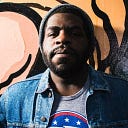Member-only story
There Is No ‘After’ the Protests
A new series from GEN looks at how we can reconcile our organizing lives with our working lives
As I have been putting together “The Uprising Marches On,” GEN’s package on what’s next for the movement for Black lives, I have been finding myself explaining to people more and more how I distinguish between my work as a writer and my work as an organizer. For the latter, it comes down to showing up in the best way I can for the many communities which call me one of their own. This is something I feel good about most days. I feel good about the former, too — not often because of my own writing, but for the kind of writing I’ve encountered while editing this package. Writing that challenges mine and pushes it forward.
The reason for the distance between my writing life and my organizing life is simple: In some capacity, I organized and fought in this city — Columbus, Ohio — before I wrote here. Organizing work is, first and foremost, what has continued to push me beyond my individual interests and the somewhat romantic idea that my writing alone meets the demands of the moment. The moment demands more from me, more from my peers. Not just on the street, but beyond. Bail funds need to be maintained, people incarcerated in Ohio prisons are still sick, or still anxious about getting sick, supply chains have…

